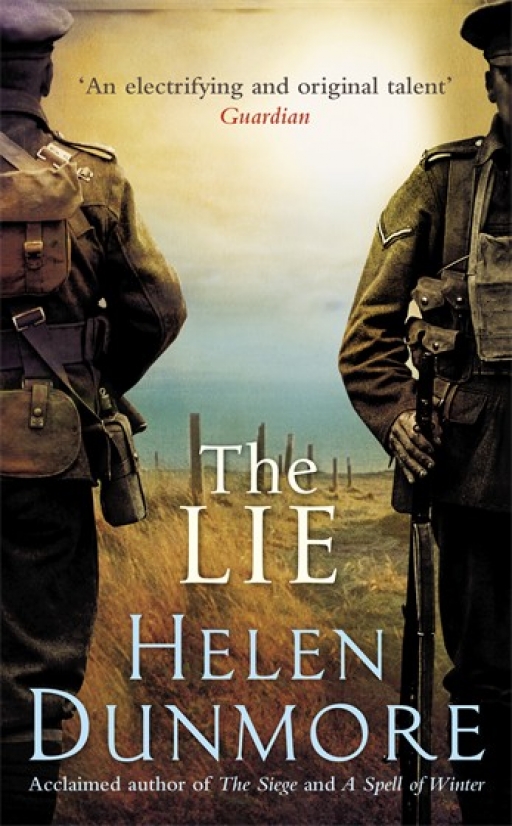Publisher’s Description
“Set during and just after the First World War, The Lie is an enthralling, heart-wrenching novel of love, memory and devastating loss by one of the UK’s most acclaimed storytellers.
Cornwall, 1920, early spring.
A young man stands on a headland, looking out to sea. He is back from the war, homeless and without family. Behind him lie the mud, barbed-wire entanglements and terror of the trenches. Behind him is also the most intense relationship of his life. Daniel has survived, but the horror and passion of the past seem more real than the quiet fields around him. He is about to step into the unknown. But will he ever be able to escape the terrible, unforeseen consequences of a lie?”
Centenary News Review
Reviewed by: Eleanor Baggley, Centenary News Books Editor
‘They say the war’s over, but they’re wrong. It went too deep for that.’
Daniel Branwell returns from the war to find his mother has died and he’s homeless. A psychologically affected war veteran, Daniel is suffering under the weight of a lie but feels drawn to the sister of his fallen childhood friend. Though still haunted by his memories of Frederick – childhood memories and wartime memories – Daniel slowly finds comfort in Felicia’s presence. But lies are inescapable and the vision of his dead friend reminds Daniel of his lie at every turn.
Every so often a book comes along that completely knocks you for six. Usually it has everything: compelling plot, authentic characters and lyrical prose. Helen
Dunmore’s The Lie is one of those books. The novel opens with an apparition – Frederick, ‘clagged in mud from head to foot’, stands at the foot of Daniel’s bed. This is an image that will appear throughout, as Daniel is haunted by the burden of his own memories. As previously demonstrated in The Greatcoat, Dunmore has a particular talent for creating quietly chilling tales.
The narrative of The Lie fluidly oscillates between present time and Daniel’s memories. As the story unfolds we learn more about Daniel’s childhood friendship with Frederick and their shared wartime experience. This is not a linear novel but its non-linear structure is perhaps its greatest strength. As a reader I felt quite an emotional connection to Daniel and as his friendship with Felicia grew at the same time his friendship with Frederick is revealed, it became difficult to sever that connection.
This is a novel that recognises the relativity of peace. Britain may be at peace in 1920 but for some individuals, the war is still far from over. Daniel’s restlessness and mental turmoil is written so well by Dunmore that is becomes increasingly hard to move away from the story (this is a book to be devoured).
What do you think about this book or review? Please add a comment below.
